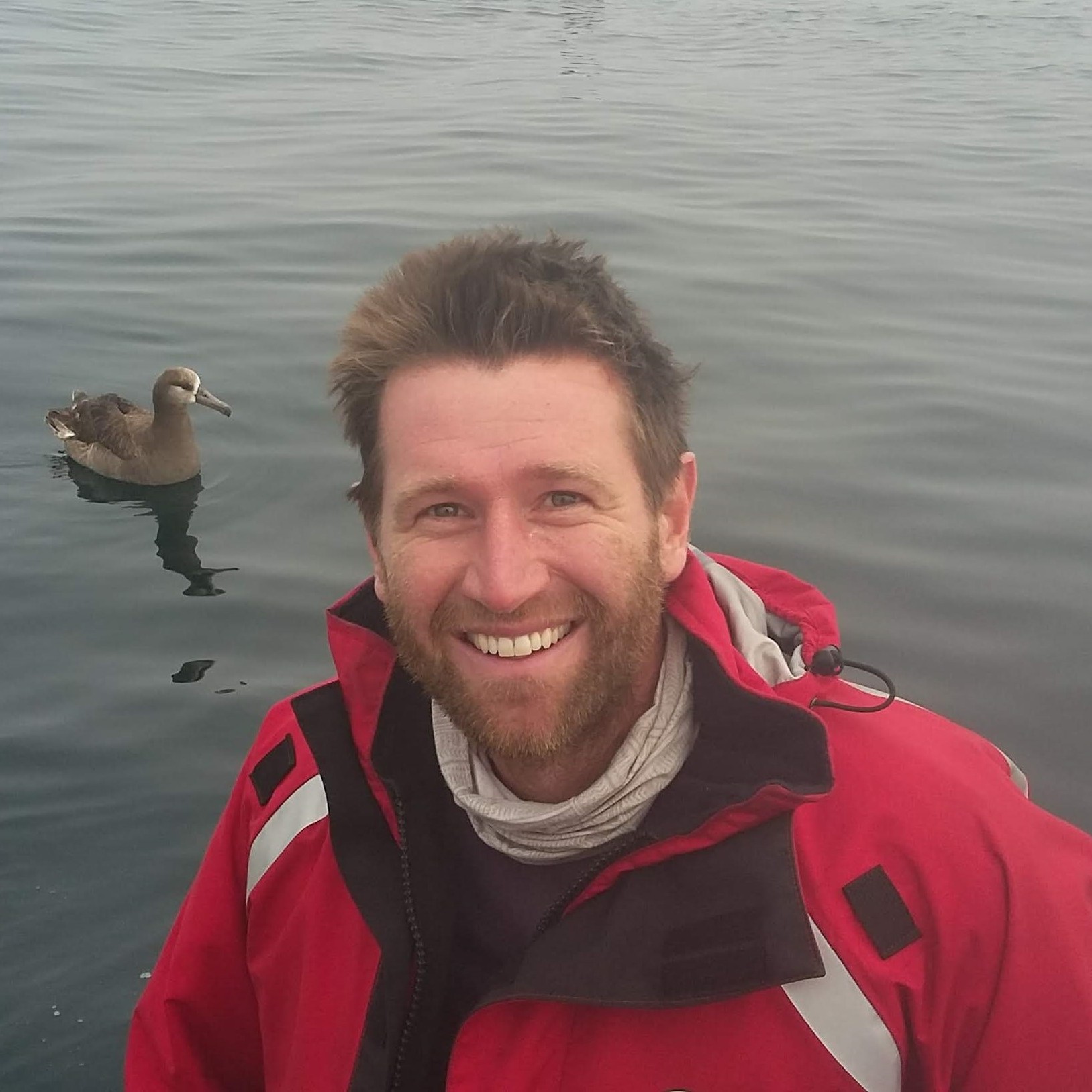About This Project
Limited oceanographic data prevent accurate prediction of whale foraging hotspots. To address this, we will develop and deploy novel ocean-sensing tags on blue whales to simultaneously measure ocean conditions and animal behavior, offering new insights into how fine-scale ocean processes influence whale feeding. This data will fill gaps in marine ecosystem research and inform adaptive conservation strategies to mitigate human impacts on blue whales, supporting their recovery in a changing ocean.
Ask the Scientists
Join The DiscussionWhat is the context of this research?
Unraveling the processes that drive predator and prey distributions is key to understanding marine ecosystem dynamics. While much of our knowledge about ocean processes comes from surface-based observations (e.g., ships, satellites), a deeper understanding of how these processes influence animal movements requires exploring beneath the surface. Perhaps the best way to understand animal behavior in relation to oceanographic conditions is to measure both simultaneously. Advances in biologging technology have revolutionized our ability to track marine animals underwater, revealing their movements and behaviors as they dive. Recent innovations in biologging technology now allow us to capture the ocean conditions animals experience as they navigate and forage. The combination of these two biologging technologies are just beginning to be explored together, and our project seeks to combine and deploy them for the first time on the world’s largest predator, the blue whale.
What is the significance of this project?
Baleen whales play a vital role in marine ecosystems, yet many species, including blue whales, remain endangered. Recent studies have revealed that fine-scale ocean processes (e.g., hours; kilometers), such as eddies and fronts, shape krill aggregations and directly impact blue whale feeding efficiency. However, the mechanisms that drive the formation of these feeding hotspots remain poorly understood. This project will integrate biologging technologies to collect data at the scales most relevant to predator-prey interactions, addressing a critical gap in marine ecosystem research. By improving our ability to predict where and when blue whales will occur, this research will help develop adaptive conservation measures to mitigate human impacts (e.g., ship strikes) and support their recovery in a rapidly changing ocean.
What are the goals of the project?
This project aims to improve our ability to measure ocean conditions at the fine scales necessary for understanding whale foraging behavior. The overarching goal is to develop and test a novel tag design that can be deployed on large baleen whales and utilized by the broader research community. Specifically, we will combine a prototype whale-borne CTD (Wildlife Computers Scout-CTD) to collect high-resolution temperature and salinity data, with fine-scale movement sensors (TechnoSmart AGM). This combined tag will provide unprecedented insight into the oceanographic features that structure prey aggregations while simultaneously measuring animal movements and behaviors. We will deploy this tag on several blue whales off the California coast in the Summer/Fall of 2025. Results from the test deployments will be compared to previous tag deployments on blue whales in the same region to evaluate the performance of new sensors and inform recommendations for tag design improvements.
Budget
Our team has secured a prototype SCOUT-CTD tag from Wildlife Computers, which has successfully been deployed on pinnipeds over the past several years. This project would be the first to deploy these tags on baleen whales. Our budget covers the labor and costs of assembly of the tag components into a package that can be deployed on a whale, as well as the mechanism for deploying the tag. Once these components are assembled and bench tested, these funds will enable us to conduct several test deployments of the tag on blue whales off California. Once the tag is recovered from each test deployment, we have budgeted time for the analysis and interpretation of results to provide recommendations for future use of these tags on baleen whales.
Endorsed by
 Project Timeline
Project Timeline
Once we receive the prototype Scout-CTD tag from Wildlife Computers in June, we will spend several weeks engineering and adapting the tag for deployments on blue whales. Once we have tested the device, we will look for opportunities for several deployments on blue whales, which will coincide with the highest densities of animals in our region (Jul-Sep). After recovering the tags, we will analyze the data and report our findings (Oct-Dec).
Apr 07, 2025
Project Launched
Jul 15, 2025
Adapt Scout-CTD tag for Blue Whales
Sep 30, 2025
Deploy on blue whales on the US West Coast
Dec 31, 2025
Report findings
Meet the Team
Affiliates
Affiliates
Team Bio
Cascadia Research Collective is a non-profit tax-exempt (501c3) scientific research and education organization based in Olympia, WA. Since 1979, Cascadia has pursued research in the fields of marine mammal and bird biology, animal behavior, and ecology, and has been a leader in the development and use of biologging technologies on whales.
James Fahlbusch
Dr. James Fahlbusch is a marine biologist and bio-logging specialist with over a decade of field experience in some of the most remote ocean environments. Since 2012, he has been an integral part of Cascadia Research Collective’s West Coast team, where he conducts surveys and develops, deploys and analyzes multi-sensor tags for large whales. He earned his Ph.D. from Stanford University’s Hopkins Marine Station under Dr. Jeremy Goldbogen, where he combined cutting-edge biologging technology with remote sensing to uncover how whales navigate dynamic ocean environments in search of food. His research bridges behavior, movement ecology, and oceanography to inform conservation efforts for these ecologically vital species.
John Calambokidis
John Calambokidis is a Senior Research Biologist and one of the founders of Cascadia Research Collective. His primary research interests are the biology of marine mammals and the impacts of humans. He has conducted studies on a variety of marine mammals in the North Pacific from Central America to Alaska for 50 years, and has directed long-term research on the status, movements, and underwater behavior of blue, humpback, and gray whales. John has authored two books on marine mammals (on blue whales and a guide to marine mammals) as well as more than 135 publications in scientific journals, 150 technical reports, and 175 scientific presentations. He has served as an Adjunct Faculty at the Evergreen State College teaching courses on marine mammals. His work has been covered on shows by National Geographic, Discovery Channel, BBC, and others, and he has received awards from the American Cetacean Society for Lifetime Achievement in Marine Mammal Science (in 2012), from the Washington Chapter of the Wildlife Society for Lifetime Leadership in Conservation (2019), and the Olympia Rotary Club Environmental Protection Award (2018).
Lab Notes
Nothing posted yet.
Project Backers
- 2Backers
- 51%Funded
- $4,755Total Donations
- $2,377.50Average Donation

